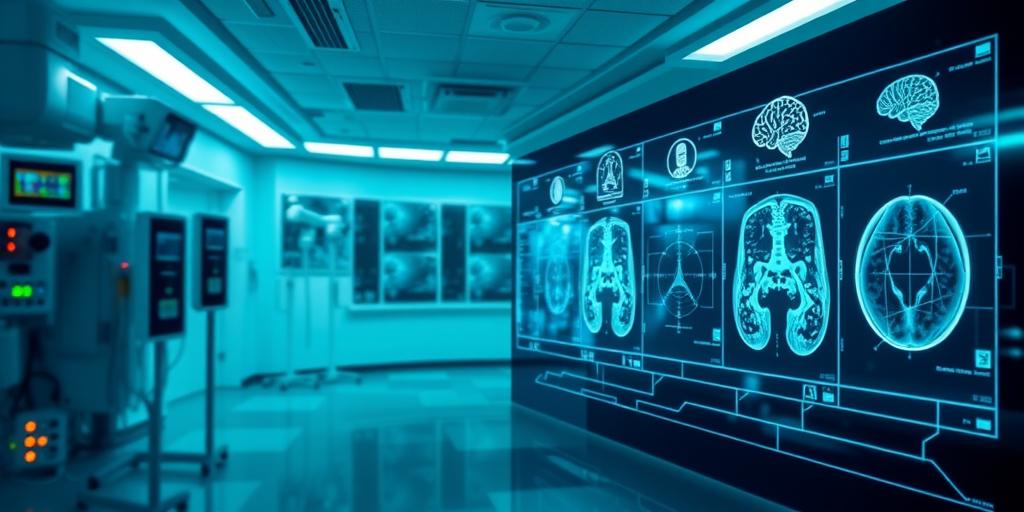AI in Healthcare: Diagnostics, Drug Discovery, and Beyond (2025)
Artificial intelligence (AI) is rapidly transforming the healthcare industry, offering unprecedented opportunities to improve diagnostics, accelerate drug discovery, and enhance patient care. This post will explore the current state of AI in healthcare and look ahead to its potential impact by 2025.
AI in Diagnostics
AI algorithms are now capable of analyzing medical images with remarkable accuracy. AI can detect subtle anomalies in X-rays, MRIs, and CT scans that might be missed by human radiologists, leading to earlier and more accurate diagnoses. Some examples include:
- Cancer Detection: AI algorithms can identify cancerous tumors in medical images, often at earlier stages than traditional methods.
- Cardiovascular Disease Diagnosis: AI can analyze electrocardiograms (ECGs) and echocardiograms to detect heart conditions and predict the risk of heart attacks.
- Neurological Disorder Detection: AI can assist in diagnosing neurological disorders like Alzheimer’s disease and multiple sclerosis by analyzing brain scans and cognitive tests.
AI in Drug Discovery
Drug discovery is a complex and time-consuming process. AI is accelerating this process by:
- Identifying Drug Candidates: AI algorithms can analyze vast datasets of chemical compounds and biological information to identify potential drug candidates.
- Predicting Drug Efficacy: AI can predict how effective a drug will be and identify potential side effects, reducing the need for extensive and costly clinical trials.
- Personalized Medicine: AI can analyze patient data to identify the most effective treatments for individuals based on their genetic makeup and medical history.
Beyond Diagnostics and Drug Discovery
AI’s impact on healthcare extends beyond diagnostics and drug discovery:
- Robotic Surgery: AI-powered robots can perform complex surgical procedures with greater precision and minimal invasiveness.
- Virtual Assistants: AI-powered virtual assistants can provide patients with personalized health advice, medication reminders, and emotional support.
- Predictive Analytics: AI can analyze patient data to predict the risk of hospital readmissions, identify patients who need proactive care, and optimize hospital operations.
Challenges and Opportunities
While AI offers tremendous potential for healthcare, there are also challenges to address:
- Data Privacy and Security: Protecting patient data is crucial. Robust security measures and ethical guidelines are needed to ensure the responsible use of AI in healthcare.
- Regulatory Frameworks: Clear regulatory frameworks are needed to govern the development and deployment of AI-based medical devices and treatments.
- Bias and Fairness: AI algorithms can be biased if they are trained on biased data. It is important to ensure that AI systems are fair and equitable for all patients.
By 2025, AI will be an integral part of healthcare, transforming how diseases are diagnosed, drugs are developed, and patients are cared for. Addressing the challenges and embracing the opportunities will be key to realizing the full potential of AI in healthcare.
